1.
University of Toronto 5/5 (3 reviews)
2.
University of Alberta 4.5/5 (4 reviews)
3.
McMaster University 5/5 (3 reviews)
4.
University of British Columbia 5/5 (3 reviews)
5.
McGill University 5/5 (3 reviews)
6.
University of Calgary 5/5 (5 reviews)
7.
Dalhousie University 5/5 (5 reviews)
8.
Western University 3.35/5 (3 reviews)
9.
Queen's University 5/5 (5 reviews)
10.
University of Ottawa 4/5 (1 reviews)
11.
Conestoga College 4.7/5 (21 reviews)
12.
Algonquin College 4.6/5 (12 reviews)
13.
University of Victoria 4.6/5 (12 reviews)
14.
Memorial University 4.75/5 (4 reviews)
15.
University of New Brunswick (UNB) 4.75/5 (4 reviews)
16.
University of Saskatchewan 4.75/5 (4 reviews)
17.
Toronto Metropolitan University 5/5 (1 reviews)
18.
York University 5/5 (2 reviews)
19.
University of Manitoba 3.65/5 (3 reviews)
20.
St. Francis Xavier University 3.65/5 (3 reviews)
21.
Laurentian University 5/5 (5 reviews)
22.
Nipissing University 4/5 (1 reviews)
University of Toronto
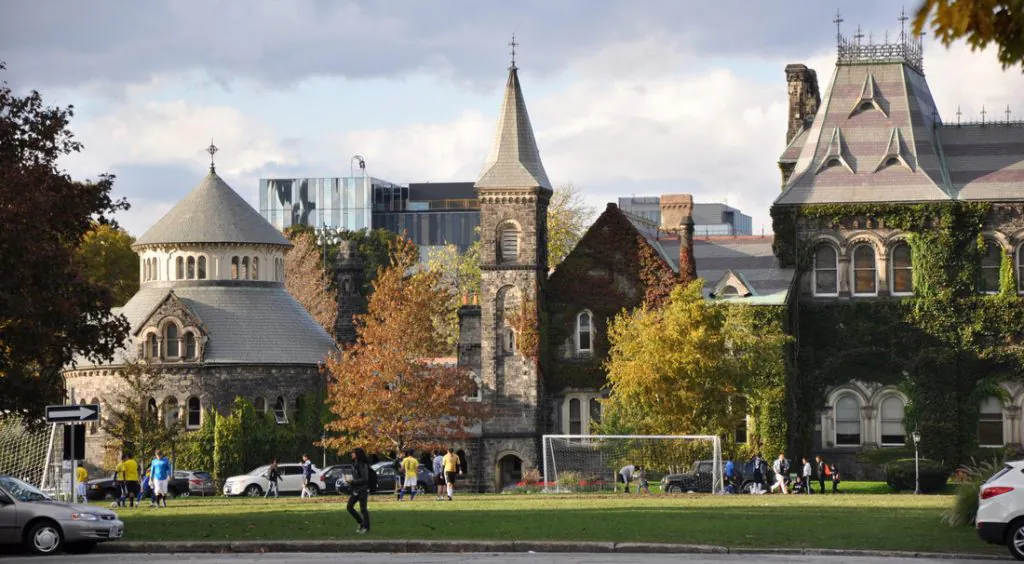
About the University of Toronto
With a highly respected reputation in the medical profession, the University of Toronto is known for producing exceptional graduates in health programs. The internationally recognized nursing program at U of T provides students with a foundation to build a rewarding career. The University of Toronto Lawrence S. Bloomberg Faculty of Nursing’s full-time, two-year Bachelor of Science in Nursing (BScN) program provides graduates with the intensive training required to provide care for patients across a range of needs.
The graduation rate at UofT nursing is 96.2 per cent and the employment rate after six months is 93 per cent and 94 per cent after two years.
What You’ll Learn
Students begin with the introduction to nursing practice, which covers health assessment, relational skills, and therapeutic skills. Knowledge gained in the course can be applied to all clinical settings. Nursing students in the program also study pathophysiology and pharmacotherapeutics, community health, care of children and families, and childbearing persons. In year two, courses include current topics in medical microbiology, which covers common infectious diseases. Experts in microbiology, infectious diseases, and infection control discuss current research and its relevance to nursing practice. Other areas covered include policy, ethics and leadership, research and scholarship in nursing and coping with complexity in persistent illness. Students complete an 11-week continuous integrative clinical practicum at the end of year two. Student placements are chosen in collaboration with faculty and in consideration of future career goals, student strengths and challenges.
Locations
Toronto
University of Alberta
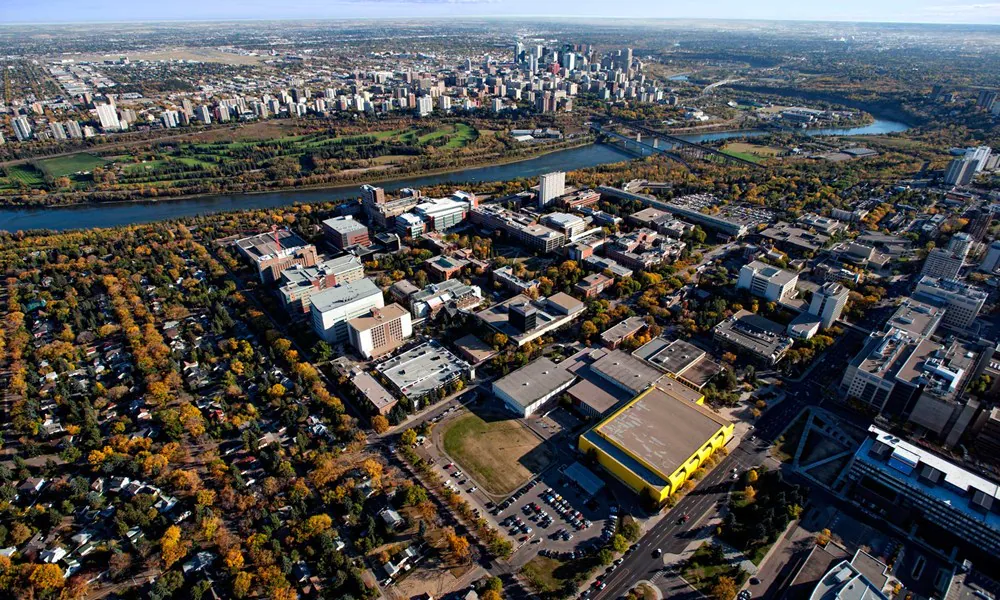
About University of Alberta
The University of Alberta, located in Edmonton, offers four undergraduate programs that lead to a BScN, including a collaborative program with Red Deer College, Keyano College (Fort McMurray), or Grande Prairie Regional College. All four years can be taken at any of the three colleges. After the third year, students apply to the University of Alberta and are considered U of A students for their fourth year, but can remain at the institution where they began their degree. The other RN program options include a BScN bilingual degree in collaboration with Faculté Saint-Jean, BScN Honors for those interested in research, After degree program for those who already hold a university degree in any field of study. In 2009, the Faculty of Nursing and Alberta Health Services’ Royal Alexandra Hospital celebrated the official opening of a collaborative Clinical Learning Unit for patients, staff, students and faculty.
What You’ll Learn
Courses in the BScN degree nursing programs include foundations of anatomy and physiology for nursing, medical microbiology for health care professionals, community engagement in a health care context, indigenous health in Canada, statistics and knowledge management, mental health and wellness in nursing and more. Clinical nursing practise experience is gained in concentrated blocks of time in various community and institutional settings, including hospitals, continuing care centres and schools in the Edmonton area.
Locations
Edmonton, Red Deer, Grand Prairie, Ford McMurray
McMaster University
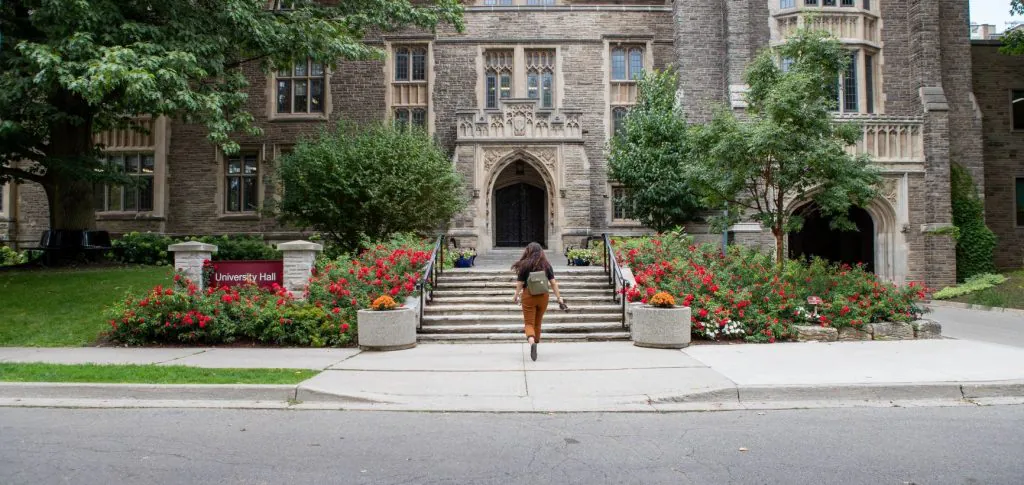
About McMaster University
The School of Nursing at McMaster in Hamilton, Ontario, was established in 1946 and became part of the Faculty of Health Sciences in 1974 when it moved into the McMaster University Medical Centre. Nursing students obtain clinical placement experience in the health care and community agencies of Hamilton, Halton, Brantford, Niagara and surrounding areas. The four-year degree program is offered in collaboration with Mohawk College and Conestoga College, with local teaching hospitals and community health settings providing clinical training opportunities.
The McMaster Bachelor of Science in Nursing program is offered as a basic accelerated and post-diploma RPN stream. The Basic Stream is a four-year integrated program of study for students who have no other nursing education and is offered at the McMaster, Mohawk and Conestoga sites. The accelerated stream consists of five consecutive terms of study and is designed for students coming from a university science program and is offered at McMaster in Hamilton. The post RPN stream is a three-year integrated study program for students who have earned an RPN diploma. It is provided at Mohawk and Conestoga colleges. Graduate nursing programs are also available at McMaster.
The employment rate for McMaster nursing grads is 95.5 per cent after six months and 97.1 per cent after two years. The graduation rate is 81.8 per cent.
What You’ll Learn
Courses in the first-year nursing program include introduction to nursing practice, introduction to the social determinants of health, psychology, neuroscience and behaviour, human biochemistry, human anatomy & physiology and more. By year three and four, students study nutrition and metabolism, nursing research and advanced nursing concepts. In year four, students are placed in various settings to experience the nursing role.
Locations
Hamilton
University of British Columbia

About University of British Columbia
UBC’s School of Nursing, Faculty of Applied Science, shares its campus with other healthcare colleagues in medicine, pharmacy, nutrition science, occupational therapy, physiotherapy and dentistry. It has formal partnerships with universities around the world. Faculty members serve as advisors to the health authorities at the Ministry of Health and teach informatics. Clinical partners include Fraser Health, Providence Health Care, Vancouver Coastal Health and Provincial Health Services Authority. The UBC School of Nursing BSN Program is an accelerated program leading to a BSN degree. Students enter the program in year three either after completing a bachelor’s degree or achieving a minimum of 48 credits in another field of study at UBC or other college or university.
What You’ll Learn
All nursing courses are taken in years three and four plus a summer term, resulting in a five-term BScN program (20 consecutive months of study). A direct four-year entry program is available at UBC-Okanagan. Courses include theoretical and professional foundations for nursing practice, basic principles of pharmacology for nursing practice, health impacts of climate change, theoretical perspectives in nursing: people living with mental health challenges and their families, leadership, policy and informatics, promoting the health of indigenous people and more.
Locations
Vancouver, Kelowna (Okanagan campus)
McGill University

About McGill University
McGill’s Ingram School of Nursing in Montreal has provided training in nursing since 1920. It offers five formal programs at the bachelor, master, and doctoral level with variations within to accommodate the educational background of students and their specialized interests. Students study in the network of McGill teaching hospitals and local community health centers. There are three bachelor degree programs to choose from, including the Bachelor of Nursing (Integrated) Online for those with a CEGEP diploma in nursing which will receive its first cohort in September 2021. With the exclusion of clinical courses, all courses are online for that program.
What You’ll Learn
The BScN is a three-to-four year program that focuses on complex and contemporary nursing issues. First-year students have clinical studies in the community and have a range of hospital and community experiences. There is an option to study abroad for a semester in the final year of the program. Students take a range of courses within the biological, social and nursing sciences. Courses cover subject areas such as fundamental nursing expertise, skills and critical thinking, infection prevention and control, nursing older adults, promoting young family development, pharmacology, and legal, ethical and professional practice issues.
Locations
Montreal
University of Calgary

About the University of Calgary
Baccalaureate nurses have been graduating from the University of Calgary Faculty of Nursing for more than 50 years. There are three routes to a Bachelor of Nursing degree at U of C — a four-year program directly from high school, a 28-month program after transfer program from another university or college, and a 24-month program for those who already hold a degree from another institution.
What You’ll Learn
In the first year, students take compulsory courses including anatomy and physiology, English, statistics and philosophy, which help prepare them for future nursing practice and options that allow for exploration of personal interests. By term three, students learn essential practice skills such as communication and understanding the patient holistically. In term, seven students enter into practice setting and integrate theory into practice. The final semester includes on and off-campus practice experiences. In addition to primary care and health promotion, at the University of Calgary, students learn about nursing as a scholarly activity, including the application of analysis, critical thinking and research.
The program includes 1,600+ hours of practice learning, and instructors are closely tied to practice settings to offer students the most current clinical knowledge. Groups of eight students learn together in practice settings, forming a support network over time and creating a network of friends and peers for the lifetime of a career.
Locations
Calgary
Dalhousie University

About Dalhousie University
The School of Nursing was established in 1949 and is part of Dalhousie’s Faculty of Health Professions. The Bachelor of Science in Nursing (BScN) degree offers students the opportunity to complete their nursing degree locally, nationally and abroad in three years as direct entry students or two years as an Advanced Standing student. The degree can be completed at the Halifax and Yarmouth, Nova Scotia locations. Residents of Nunavut can enroll in the BScN (Arctic Nursing) program, offered in collaboration with Nunavut Arctic College. Graduate programs are also available, including Master of Nursing, Master of Science in Nursing, Doctor of Nursing, Certificate in RN Prescribing.
What You’ll Learn
Besides studying human anatomy and physiology, you’ll explore the spectrum of nursing from proper hygiene practices and mobility protocols to legal issues and medical ethics. Courses include health science microbiology, nursing and family health and more. There is also the ability to earn specialized nursing certificates on top of the nursing degree, including Perinatal and Pediatric Nursing, Public Health Nursing, Mental Health Nursing, Acute/Critical Care Nursing.
Locations
Halifax, Yarmouth, Nunavut
Western University

About Western University
The Arthur Labatt Family School of Nursing at Western University in London, Ontario, provides students access to a learning environment that prioritizes research, community involvement and the latest developments in medical care. For 100 years, the School of Nursing at Western has played a significant role in providing the training and knowledge nursing professionals need to succeed. With roots in public health, the school has evolved to become a world leader in innovative health professional education, research, practice and policy.
Western’s employment rate for nursing graduates after six months is 92.7 per cent and after two years is 98.9 per cent. The graduation rate for this program is 89.7 per cent.
What Students Are Saying
“I graduated in 2019 and grew so much, personally and professionally, over four years because of this program. Clinical placements were very good but you need to prepare for them. Ask questions before you begin and expect to practice, practice, practice, because class work won't fully make you ready for what happens in a real health care setting. But I was given plenty of help in areas where I needed it. For nurses who want research specialties, there are better nursing programs out there, like UofT, UBC and McMaster. I am interested in paediatric nursing and will need more experience and training in this field, but what I learned was certainly enough to pass the NCLEX. Western's NCLEX rating is higher than most universities! Best of all was the community. Great people supporting each other 100% of the way, especially important during these trying times. ”
Cynthia S., Array
What You’ll Learn
With programs at the undergraduate and graduate levels, Western’s School of Nursing offers a variety of options, including two ways to earn a Bachelor of Science in Nursing (BScN) degree. The Western-Fanshawe College collaborative program is designed for students applying directly from secondary school or mature applicants seeking to develop skills and knowledge to begin a career as a registered nurse. Alternatively, a compressed 19-month program is available for students who already hold a university degree or have two years of university and have completed specific prerequisite courses. Just 104 students are accepted into this program each year.
In the collaborative program, students spend two hours per week in clinical lab settings, learning and applying introductory health assessment techniques necessary to begin the process of developing clinical judgment. Students gain experience in clinical simulation environments, which increases in the second year. Courses include human anatomy, holistic health assessment, human physiology and more. Health promotion, understanding the social determinants of health, social justice and person-centred collaborative care are emphasized.
Locations
London
Queen's University

About Queen’s University
The nursing program at Queen’s University located in Kingston, Ontario, is more than 75 years old and has a reputation for excellence in a small city that provides students with various placement opportunities that range from hospitals to penitentiaries. As a research-intensive institution, Queen’s ensures the nursing program curriculum is current and relevant. It is part of the Faculty of Health Sciences at Queen’s, providing for inter-professional learning opportunities. The Bachelor of Nursing Science program is a four-year program with a hands-on practical learning experience in various clinical settings, including the School of Nursing Simulation Lab and GSK Clinical Education Centre. Every student gets a placement in pediatrics, maternity, mental health, medical-surgical and community care.
The employment rate for graduates from Queen’s nursing is 93.42 per cent within six months and 100 per cent within two years. The graduation rate is 90.2 per cent.
What You’ll Learn
Nursing students will have the opportunity to work and interact with students and professionals across various health professions. All students receive instruction and practicums in community health promotion, management and leadership in health care, maternal and child family centred nursing care, medical and post-surgical nursing care and mental health nursing care. In years two, three and four of the degree program, students complete clinical practice in children’s, maternity, mental health, hospitalized patients, and community settings.
Locations
Kingston
University of Ottawa

About the University of Ottawa
The University of Ottawa is the largest bilingual university in the world. The school of nursing at UOttawa prepares students to offer quality care, assume leadership roles in the health care profession and contribute to ongoing research and community engagement to promote health and well-being. The undergraduate program is offered in both official languages, and students can choose to study in their preferred language. The four-year BScN program can be completed entirely through the uOttawa program or via the collaborative program offered jointly in English at Algonquin College in Ottawa and Pembroke, Ont., and in French at La Cites College, also in Ottawa — the largest French-language college in Ontario. There is also a bridging program for internationally educated nurses and registered practical nurses. Masters and Ph.D. programs in nursing are also available at the university.
The employment rate for graduating nurses from UOttawa is 97.6 per cent after six months and 99.2 per cent after two years. The graduation rate is 80.8 per cent.
What You’ll Learn
Courses in the undergraduate nursing program at the University of Ottawa include introduction to nursing science, health assessment, research in nursing, nursing professionalism and ethics, mental health nursing, family-centered care of children with acute and chronic illness and theory in nursing. Clinical placements occur in various settings, including mental health, community health nursing and complex nursing care.
Locations
Ottawa, Pembroke
Conestoga College

About Conestoga College
Located in Kitchener, Ont., Conestoga College was established in 1967, and now offers more than 270 programs across nine campus locations and serves approximately 40,000 registered students through campuses and training centres across southwestern Ontario. Continuing education programs draw another 26,000 enrolments annually.
Conestoga offers four different nursing programs including: Practical Nursing — a popular two-year Ontario College Diploma course offered at the college’s Kitchener campus; a four-year degree program that is new for 2024; an Enhanced Practice for Internationally Educated Nurses program which is a two-year graduate certificate program for experienced internationally educated nurses who hold a four-year bachelor’s degree in nursing; and a one-year Nursing Leadership and Healthcare Management program designed to meet the needs of people who have completed a nursing program and wish to pursue leadership, management, or administrative roles across healthcare sectors. This one-year full-time program is offered at Conestoga’s Guelph campus.
More than 86 per cent of Conestoga students find work within six months of graduation, and 93 per cent of employers are satisfied with their graduates. Conestoga’s graduation rate of above average in Ontario, and nearly 80 per cent of students are satisfied with their experience.
What Students Are Saying
“I was trained in India and began my nursing career in Canada as a PSW. The program at Conestoga for internationally educated nurses helped me get my license as registered nurse in Canada before I moved on to get my master's in nursing. I then trained to be a nurse practitioner. The program covers the basics of nursing in Canada and advanced subjects like cardiac nursing and how to interpret ECGs, which normally is not offered as a separate course. The teachers are great and you get to learn from people with different backgrounds in differ clinical areas. Canadian nurses have a bigger scope than nurses in any other country. Learning about these areas plus getting a clinical placement was a huge advantage. The program also supported me as a I managed family and getting used to living in Canada. ”
Jaspreet, Enhanced Practice for Internationally Educated Nurses
What You’ll Learn
Announced in December 2023, The new Bachelor of Science – Nursing degree program was developed following the Ontario government’s decision in 2020 to allow both public colleges and universities to offer a baccalaureate degree in nursing to increase opportunities for students to access high-quality education. Until now, Conestoga delivered a BScN degree in partnership with McMaster University.
Conestoga’s new BScN program will take a contemporary approach to nursing education delivery, with courses and learning designed to address the most pressing issues in healthcare today. Extensive hands-on clinical learning opportunities will provide students with strong foundations in nursing practice across a variety of settings and client ages.
Students in the Practical Nursing program learn foundational knowledge based on scientific theory from nursing, the physical and psychosocial sciences and humanities. Person-centred care is learned in context through real-life experiences and career-related work-integrated learning (WIL) experiences. Providing care to seniors is given special attention to meet the needs of an aging population.
For international students who choose the Enhanced Practice for Internally Educated Nurses program, the emphasis is on the nursing knowledge and skills needed to practice in Canada, with a focus on caring for seniors throughout the continuum of care. Learning takes place through scholarly writing, case studies, projects, presentations, and simulated patient encounters. Students will take part in field placements in diverse healthcare settings including medicine, surgery, complex continuing care, and long-term care. This program provides students with extensive hands-on clinical experience, including more than 400 placement hours. Additionally, in preparation for the nursing registration examination, graduates will complete NCLEX and OSCE-style courses.
Additionally, students will conduct comprehensive assessments to plan individualized care supporting health promotion and disease prevention in complex and non-routine patient environments. Learning also occurs through integrated evidence-informed research, theory, and critical inquiry within the context of the Canadian healthcare system to inform nursing practice and advance clinical judgment.
There is also an emphasis placed on communicating effectively with diverse populations and the healthcare team to form partnerships and improve health outcomes for individuals, families, groups, and communities.
Locations
Kitchener, Waterloo, Guelph
Algonquin College

About Algonquin College
The Bachelor of Science in Nursing Degree program at Algonquin College is offered in collaboration with the University of Ottawa. You may choose to study at either: University of Ottawa; Algonquin College, Ottawa Campus; or Algonquin College, Pembroke Campus.
Those studying at Algonquin College, Ottawa Campus take some of their courses in the first year at the University of Ottawa. Conversely, students attending Algonquin College, Pembroke campus complete all of their classes in Pembroke.
Regardless of their chosen location, graduates will ultimately earn a Bachelor of Science in Nursing (BScN) Degree from the University of Ottawa. As a graduate, you play a vital role in advancing nursing both as an art and as a science. Moreover, after graduation, you have the option to pursue further studies at the graduate level.
What You’ll Learn
Through this four-year program, students acquire the necessary skills to embark on a career in nursing. This comprehensive program prepares you to assume the responsibilities of a Registered Nurse, delivering high-quality care within the healthcare system.
Throughout the program, you engage in a diverse range of learning experiences, including classroom lectures, hands-on laboratory work, and practical training in various clinical settings. The program’s primary objectives encompass the development of critical thinking and communication abilities, enabling you to function as a proficient nurse who collaboratively addresses healthcare challenges as part of a team.
The demand for BScN graduates is substantial, and they have a plethora of employment opportunities in hospitals, community health agencies, long-term care facilities, private practices, and numerous other settings across Canada and worldwide.
Locations
Ottawa, Pembroke
University of Victoria

About the University of Victoria
The University of Victoria offers an undergraduate degree Bachelor of Science in Nursing and two graduate degrees Master of Nursing and PhD in Nursing. As part of the Faculty of Human and Social Development the School of Nursing provides the opportunity for scholarly connections through the Institute on Aging and Lifelong Health, the Centre for Youth and Society and the Centre for Addictions Research of BC. Research and practice relationships also exist with Island Health, Vancouver Coastal Health, Fraser Health Authority, Northern Health Authority and the Ministry of Health. The nursing programs are provided in partnership with Camosun College, Selkirk College, Aurora College and College of the Rockies.
What You’ll Learn
Teaching is inspired by research so that the student’s practical experience is complemented by a knowledge base of a patient care. Courses cover the health sciences, health and healing, global health issues, nursing ethics, health indicators and general psychology
Locations
Victoria
Memorial University

About Memorial University
Memorial is Newfoundland and Labrador’s only university and is known as a top research university in Canada. The four-year BN collaborative program at Memorial is offered at three locations — the Memorial University of Faculty of Nursing and Centre for Nursing Studies in St. John’s and Western Regional School of Nursing in Corner Brook. All three locations offer the same curricula, which combine innovative teaching strategies with hands-on practical experience. Applicants must complete an online assessment (CASPer) which helps assess applicants for people skills.
What You’ll Learn
The Bachelor of Nursing program at Memorial is designed to prepare nurses for careers in a variety of health care settings. Program options include a four-year degree program, three-year accelerated option and an LPN bridging option. The BN program offers a number of nursing practice experiences including real and simulated client care experiences. Graduates will have obtained over 1,600 hours of clinical experience — the highest in Canada. Courses include anatomy and physiology, developing therapeutic relationships, microbiology for nurses, health assessment, health promotion and more.
Locations
St. John's, Corner Brook
University of New Brunswick (UNB)
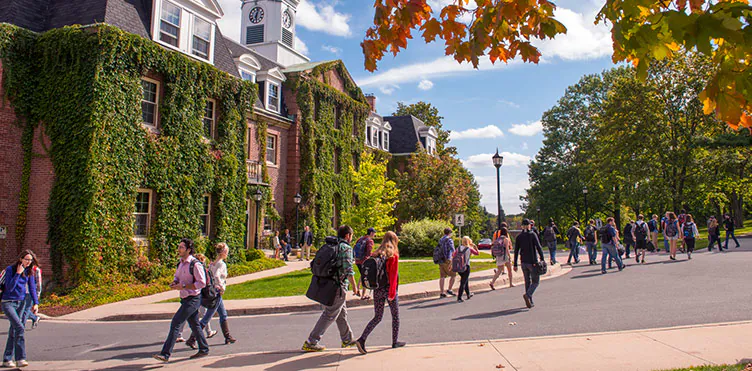
About the University of New Brunswick
The University of New Brunswick Faculty of Nursing has been educating registered nurses for more than 50 years and has a history of internationally-recognized research. The university offers a four-year Bachelor of Nursing program at the Fredericton campus and a two-year Advanced Standing program in Moncton for those with a minimum of 60 credit hours of university courses with a cumulative GPA of 3.0. The UNB Faculty of Nursing is accredited by the Canadian Association of Schools of Nursing and approved by the Nurses Association of New Brunswick. There is an Indigenous Nursing program – Nutsihpiluwewicik — that provides community health nursing experience in an Indigenous community, an elective course in Indigenous perspectives on health and wellness, cultural awareness sessions and partnerships with First Nations communities.
UNB also has a program with Humber College Institute of Technology & Advanced Learning in Toronto. The UNB-Humber Bachelor of Nursing program has two options of study: a four-year Bachelor of Nursing and a two and a half year Bachelor of Nursing second entry preparation. Students are admitted to study at Humber College’s north campus and upon successful completion of the program they are awarded a Bachelor of Nursing from UNB.
What You’ll Learn
Students get hands-on experience in their first year of the nursing program providing great preparation for second year patient assignments. The nursing program at UNB provides for a student-faculty ratio of 7:1 for most clinical experiences and includes a 12-week final practicum. In the four-year program students have the chance to get practical experience in a number of settings both locally and provincially with opportunities to study nationally and internationally. One community experience is to work in the Fredericton Downtown Community Health Centre where students learn from nurse practitioners, doctors, social workers and other health professionals.
Locations
Fredericton and Toronto
University of Saskatchewan

About the University of Saskatchewan
The College of Nursing at the University of Saskatchewan was established as a department at the School of Medical Sciences in 1938. There are two nursing degree programs available at the University of Saskatchewan.
The Bachelor of Science nursing program at the University of Saskatchewan consists of a pre-professional year followed by three years of nursing education. The first year builds the nursing program’s foundation and includes courses in the humanities, natural, social and health sciences.
A Post-Degree Bachelor of Science in Nursing (PDBSN) allows students with prior learning experience to complete a nursing degree in a shortened period and is available to those who already hold a degree or have made progress in a degree in another field. (Note: the May 2021 intake for the PDBSN has been cancelled due to COVID-19). The school also offers a Master of Nursing, Nurse Practitioner and Doctor of Philosophy in Nursing program.
On average, 98 per cent of graduates have registered nursing employment two years following graduation.
What You’ll Learn
The curriculum’s conceptual model is congruent with the medicine wheel’s concepts, a well-known model of health among Aboriginal peoples. More than 15 per cent of the population in Saskatchewan is aboriginal and expected to double by 2050. The number of Aboriginal students in the nursing program is the largest in the country. Therefore, the university has created a curriculum that is harmonized with Indigenous perspectives of health. The medicine wheel is organized around self, family, community and nation. Courses include communications and professional relationships, human body systems for nursing, principles of microbiology and immunology for nursing, foundational care in clinical practice, patient and family-centred care in clinical practice, exploring chronicity and aging and much more.
Locations
Saskatoon
Toronto Metropolitan University

About Toronto Metropolitan University (formerly Ryerson University)
The Daphne Cockwell School of Nursing offers several options for obtaining a registered nursing degree. Since 2001, Toronto Metropolitan University has offered a collaborative four-year nursing program with George Brown College and Centennial College. The program has prepared health care professionals for a range of careers in nursing. The collaborative program with Centennial and George Brown allows students to do their first two years at any of the schools and finish the final two years at Toronto Metropolitan university to obtain their degree. A post-diploma degree completion program also allows those with prior experience either in Canada or internationally to complete a nursing degree.
Work placement options take advantage of opportunities available in the Greater Toronto Area. There are more than 250 placement options in 35 hospitals and more than 200 traditional and non-traditional health settings. Placements support each year’s curriculum. Year one is in a long-term care facility; year two is in continuing care, rehabilitation or acute-care; year there is community nursing. The final year includes medical-surgical, emergency, intensive care unit, day-surgery unit, public health or other settings.
The employment rate for nursing grads from Toronto Metropolitan university is 81.2 per cent after six months of graduation, and 98.2 per cent after two years. The graduation rate is 84 per cent.
What You’ll Learn
By combining theory with clinical practice, you will learn how nurses play a critical role in treatment and recovery for patients and support broader public health goals. Core courses include health assessment, epidemiology, ethics, and more, which will strengthen your ability to practice consistent, safe and effective care. You will begin your career with a strong foundation in nursing theory combined with health knowledge of anatomy and physiology, pharmacology and nutrition.
Professionally related courses on health policy, health promotion and occupational health will engage you with the issues and opportunities you will encounter in your practice. In the clinical placements, students immerse themselves in a broad range of nursing practice settings — translating theory into practice.
Locations
Toronto
York University

About York University
The collaborative four-year honours nursing program at York allows students to take their first two years at either Seneca or Georgian College and the third and fourth years at the York University Keele campus. Students will learn critical thinking and research skills as well as gain extensive practicum and clinical experience. Students in the collaborative program complete about 1,400 hours of clinical experience through placements in each year of study.
York also offers a second entry BScN program for those students who already have a degree in any discipline and allows for completion in two years. In addition, registered nurses educated outside of Canada can enrol in the Post-RN Internationally Educated Nurses Program and earn their degree in under two years. At York, the Nursing Resource Centre opened in 2006 and is a 5,000-square-foot Nursing Simulation Centre divided into a nursing skills lab and a computer skills lab.
The graduate employment rate after six months is 84.6 per cent and 99.2 per cent after two years.
What You’ll Learn
In each degree program, students learn the theoretical and scientific knowledge of human caring and apply it to hands-on clinical practice. York’s learning partners in the community include hospitals such as the Hospital for Sick Children, Sunnybrook Health Science Centre, St.Michael’s Hospital and public health agencies. Courses include microbiology for nurses, development of self as nurse: research and inquiry, client-centred care of individuals and families in child and mental health settings, statistical methods, health and healing: community as a partner and more.
Locations
Toronto, Barrie, Ont.
University of Manitoba

About the University of Manitoba
The Bachelor of Nursing Program at the University of Manitoba’s Rady Faculty of Health Sciences off is a three-year degree program providing a solid base of nursing knowledge, clinical practice experience and a basis to grow a nursing career. The Mahkwa omushki kiim, or pathway to Indigenous Nursing Education (PINE), offers a combination of academic and peer supports to prepare First Nations, Métis and Inuit students for entrance into the Bachelor of Nursing program. Graduate programs include a Master of Nursing, Master of Nursing – Nurse Practitioner and Ph.D. in Nursing. The University of Manitoba also offers a Bachelor of Midwifery.
What You’ll Learn
Following a year of undergraduate studies, the three-year Bachelor’s degree program gives students what they need to become a professional nurse. Courses include human growth and development, health and illness in the older client, nutrition for health professionals, mental health and illness, law and ethics in nursing and gender and reproductive health.
Locations
Winnipeg
St. Francis Xavier University

About St. Francis Xavier University
Established in 1926, the Elizabeth and Thomas Rankin School of Nursing at St. Francis Xavier University in Antigonish, Nova Scotia, has been educating nurses for more than 80 years. The school offers a traditional four-year Bachelor of Science in Nursing program for those entering from high school, and a two-year accelerated program for students who have accumulated credits from another post-secondary program. Anyone interested in the nursing programs are required to complete a CASPer Assessment prior to applying. It is an online screen tool designed to evaluate a student’s personal and professional characteristics
What You’ll Learn
In first year students complete 30 arts and science course credits. After that you will be focused on nursing courses and clinical practice experiences in community health, mental health, acute care, maternal and childcare, pediatrics, and international service learning opportunities.
Locations
Antigonish, Nova Scotia
Laurentian University

About Laurentian University
Laurentian University’s School of Nursing offers a Bachelor of Science in Nursing (BScN) in both French and English. The four-year program leads to an Honours Bachelor of Science in Nursing degree. Since 2000, Laurentian has had a collaborative educational partnership with Cambrian College of Applied Arts and Sciences, Northern College of Applied Arts and Sciences, and Sault College of Applied Arts and Sciences. Upon admission to the program, students may complete all four years of the program at the institution to which they have been accepted.
In 2005, Laurentian University also entered into a collaborative educational partnership with St. Lawrence College encompassing its Brockville, Cornwall, and Kingston sites to facilitate access to BScN education. A minimum of six seats are designated each year for First Nations, Metis or Inuit students. You can tailor your degree with options such as post-RN program, web-based courses, Nurse Practitioner Certification and a MSCN degree, and BScN Collaborative College partnerships.
The graduation rate is 79.4 per cent and the job placement rate is 95.7 per cent after six months and 97.9 per cent after two years.
What You’ll Learn
Nursing includes a blend of science, mathematics, psychology, anthropology, organizational management and sociology. The education of future nurses addresses each of these areas and prepares the student for a lifelong career locally or abroad with opportunities in acute care hospitals, public health, community healthcare, telehealth, outpost nursing, research, education, healthcare management, and health policy development. Students begin their practice clinical in the first year of the program.
The School of Nursing offers a state of-the-art clinical learning laboratory and library facility. As Sudbury is the medical referral centre for Northeastern Ontario and the resulting comprehensive healthcare system allows for a variety of specialized learning opportunities for nursing students. Learning can also be enhanced by assisting with research or participating in professional nursing organizations.
Locations
Sudbury, Brockville, Cornwall, Kingston
Nipissing University

About Nipissing University
Located in North Bay, Ontario, Nipissing University offers a collaborative four-year program with Canadore College and a Registered Practical Nurse to Bachelor of Science in Nursing (BScN) bridging program on campus for three years. There is also a Registered Practical Nurse (RPN) to Bachelor of Science in Nursing blended delivery program offered part-time via distance education over five years. An accelerated full-time BScN Scholar Practitioner Program is also available for university graduates, which is completed in Toronto over two years in conjunction with the Michener Institute of Education and the University Health Network, SickKids Hospital and Toronto Public Health.
The employment rate for Nipissing nursing students is 92.3 per cent six months after graduation and 97.2 per cent per cent two years after graduation. The graduation rate is 87.2 per cent.
What You’ll Learn
Courses in the various BScN programs include aging and health, health assessment, concepts in maternity and pediatric nursing, nursing older adults, pharmacology, pharmacology, maternal childcare, transcultural nursing, family nursing and nursing Informatics. Clinical experiences are provided at the new North Bay Regional Health Centre and agencies throughout the city.
Locations
North Bay, Toronto
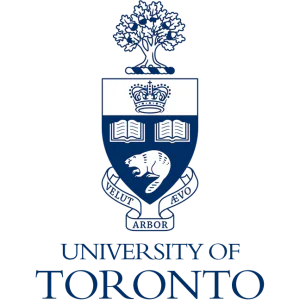

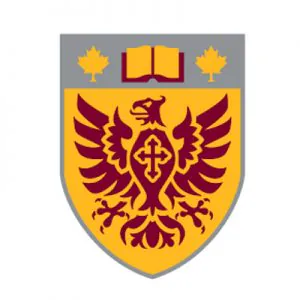
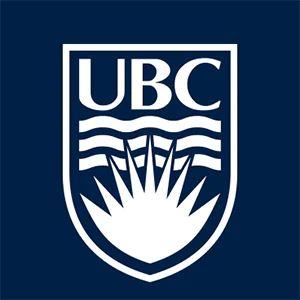
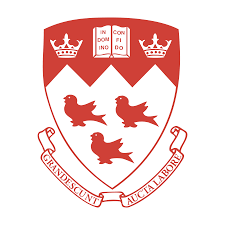
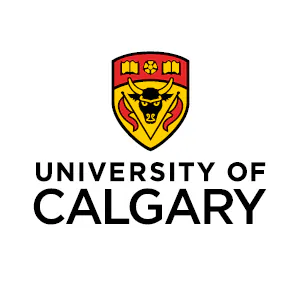

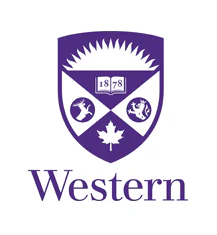
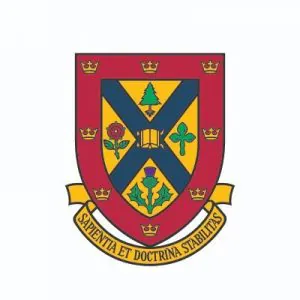
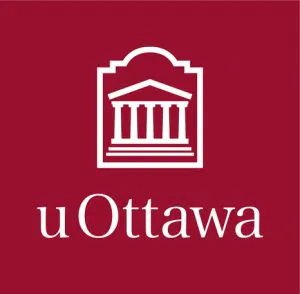

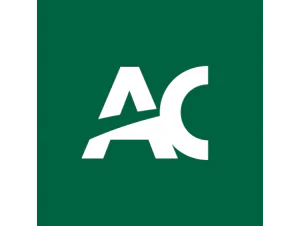
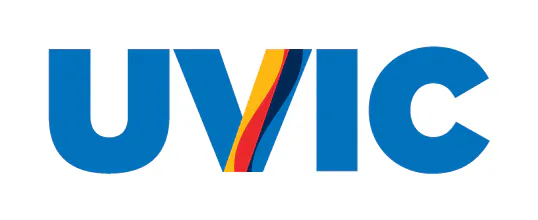
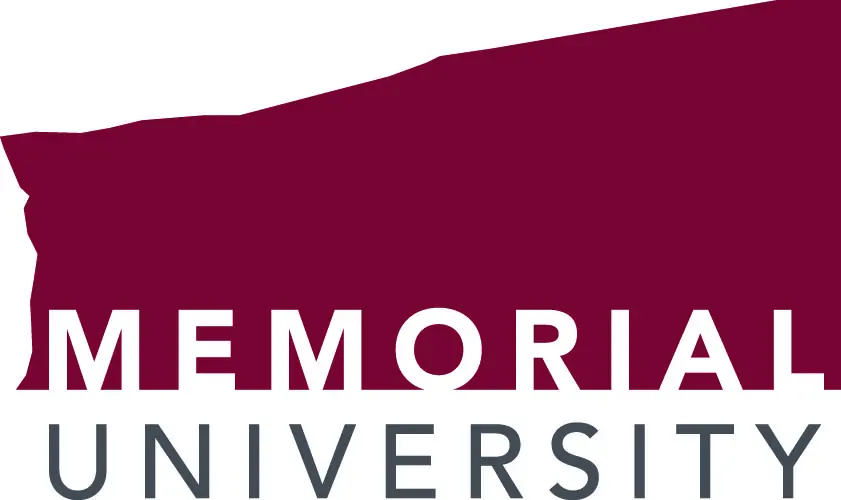
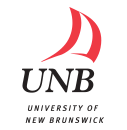


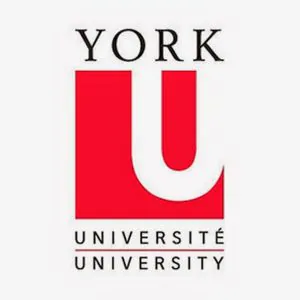


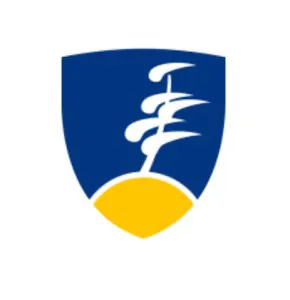

May I know more about nursing program of Ontario Tech ? what is it rank among all those U providing nursing programs ?
And may I know if it is possible for those Life Sciences 1st student of Queen’s University change to take nursing program after completion of 1st study ?
What about University of Windsor? It deserves a mention!
Please let me know if an advisor can speak to me about nursing at a University in Canada.
Nursing at Ottawa U is completely overrated. The school has a major focus on sciences and research and much less of a focus on practical nursing knowledge. Other programs in the province like St. Laurents, Nipissing, Trent and Guelph are all based off of more college based practical learning which is much more valuable. At Ottawa U, you will not start any clinical experience until the second semester of second year whereas the other schools mentioned will start you in lab and clinical placements in first year.
The only reason to go to Ottawa University for nursing is the many hospitals it is affiliated with in the city.
Facts. Mohawk or Mac is the best option in Ontario.
yes i’m very interested in ontario techs nursing program too!